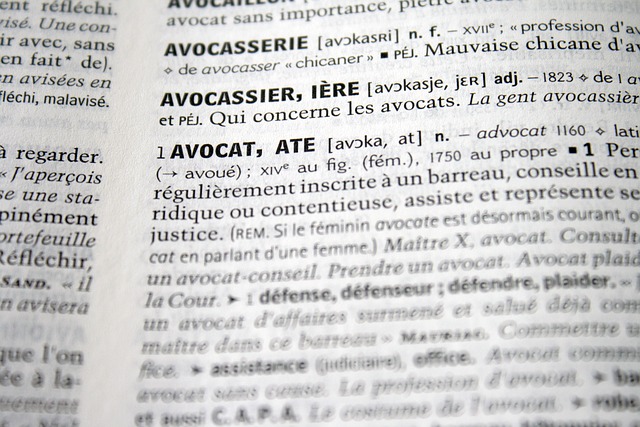Employment lawyers in Denver, Colorado represent Colorado employees in labor and employment law matters. Employment lawyers represent employees in all stages of employment law claims ranging from presuit settlements, administrative complaints, mediation, arbitration and lawsuits in federal and Colorado courts.
Labor and employment lawyers have expertise in labor and employment law in these venues. Employment attorneys represent applicants, employees and fired employees in employment law claims. These include wage and overtime, employment discrimination, medical leave, employee benefits, wrongful termination, breach of contract and similar claims. If you believe you have an employment law claim then you should contact Colorado employment lawyers right away.
- Denver employment law lawyers
- Colorado employment lawyers
- Employment lawyers in Colorado
- Breaks and work hours
- Overtime pay
- Final paychecks
Denver employment law lawyers
Denver employment lawyers help clients protect their jobs and gain meaningful remedies when employers wrongfully deny them jobs. Employment law claims include:
- Family Medical Leave Act (FMLA)
- Unpaid wages
- Unpaid overtime pay
- Wrongful termination
- Employment discrimination including:
- Age discrimination
- Race discrimination
- Ethnicity discrimination
- National origin discrimination
- Sex discrimination
- Gender discrimination
- Sexual orientation discrimination
- Transgender discrimination
- Religious discrimination
- Retaliation for exercising employment rights or complaining about unlawful employment acts
- Harassment/hostile work environment
- Whistleblower claims
- Employee benefits (401k, pension, health insurance, COBRA, HIPAA)
- Breach of contract
- Severance pay
- Misclassification of hourly workers as salaried workers
- Labor grievances under a collective bargaining agreement

Employment lawyers help clients with this wide range of labor and employment law claims. Some employment lawyers focus on a limited set of claims, such as wage and overtime issues or employment discrimination. Other employment attorneys represent clients across a broader range of Colorado employment law claims.
Employment law attorneys represent clients in more than just lawsuits. They may advise clients how to deal with potentially unlawful situations at work or negotiate employment documents. Attorneys represent clients in U.S. Department of Labor investigations and proceedings. Employment law attorneys represent clients in Equal Employment Opportunity Commission investigations, mediations and hearings.
Similarly they represent clients in employment discrimination issues at the state level at the Colorado Civil Rights Division. Colorado employment lawyers also represent clients in a wide range of activities with the Colorado Department of Labor and Employment.
Colorado employment lawyers
Employment lawyers in Colorado represent clients’ claims under both Colorado state employment law and federal employment laws. Both federal and Colorado law protect workers rights to fair pay and a job free from unlawful discrimination. Many federal and Colorado laws prohibit the same or similar unlawful employment acts by employers.
Employees may have to consider whether federal or state employment laws best protect their jobs or provide the greatest recovery after a wrongful termination or demotion. Procedural rules, the ideology of available courts and statutory terms all affect this consideration. This is among the many reasons employees should work with Denver employment lawyers to represent their interests.
Labor and employment law claims are big business for employers. A single employment law claim can have a nationwide effect on employers. One bad act by a manager or HR employee can have a big impact for the affected employee as well as employers across the nation.
Employers often hire large law firms to represent them because they understand what is on the line. Employees need powerful representation from Colorado employment lawyers to represent them against these law firms.
As an employee you should not fear standing up to your employer in court but you deserve an advocate as much as your employer does.
Employment lawyers in Colorado
Colorado employment lawyers can be found across Colorado including Denver, Colorado Springs, Boulder, Longmont, Greeley and Fort Collins. The largest concentration of employment attorneys is in Denver because it is the largest city in Colorado and the location of many courts in the state. Denver is home to Colorado state courts as well as federal courts for the federal District of Colorado and the appellate court for the federal Tenth Circuit court.
If you live in the greater Denver, Colorado area then finding “employment lawyers near me” likely includes Denver employment lawyers.
If you are in other parts of Colorado then you might find other employment lawyers near you. Location may be a convenience factor for workers because many people prefer to be close to their attorney. However, you should consider many factors when hiring employment lawyers in Colorado.
Breaks and work hours under Colorado employment law
Colorado employees often have questions about wage and work hour issues under Colorado and federal employment law. These issues can range from hours worked to breaks, overtime pay rules and payment of final paychecks. Colorado employment law is generally more favorable to employees than federal law or the wage protection laws of other states. The Colorado Wage Protection Act is one of the principal wage and hour protections under Colorado law.
Colorado employees enjoy protected rights to several breaks. Employees must receive a thirty minute unpaid lunch period if the employee works at least five hours in a shift. Additionally, the employee is entitled to rest or bathroom breaks of at least a paid ten minutes per four hours. The rest or bathroom breaks should be scheduled in the middle of the four hour period. Additionally, federal law may require the employer to offer break or rest periods for lactating mothers, as an accommodation to a disability, or as an accommodation for a religious practice.
Overtime pay in Colorado
Colorado employees, including minors, are generally entitled to overtime pay for hours worked over forty hours in a workweek unless they are exempt from overtime pay. Overtime pay is calculated as 1.5 times the regular rate of pay for each hour of work performed over forty hours in a workweek. Hourly employees generally receive overtime pay; however, properly classified salaried employees are not entitled to overtime pay. Salaried employees may be improperly classified as overtime exempt. In this case the employee may be entitled to recover unpaid overtime and other damages.
Final paychecks under Colorado employment law
Colorado employees receive protection to ensure the employer timely pays a final paycheck when the employee’s employment terminates. An employee who quits need only receive pay on the next regular pay day. An employee fired by the employer then the employer generally must pay the employee his or her final paycheck immediately.
